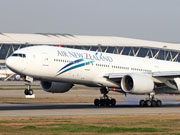This highlights a major issue in junior motorsport, an issue that has no doubt been around for many years but tragically is only just reaching the headlines. Thanks to the recent outcry at the wealth of pay drivers in F1, even less hardcore racing fans are becoming aware of the importance of cash in a racing driver’s career. I like the way Will sees it, “it seems to me that the driving is becoming a bit of a distraction from the PR.” Blunt as it may be, you can’t deny there’s a lot of evidence to back Will’s opinion; Kimi Raikkonen’s latest money related protests provide good example for this.
Instead of complaining about the unjust ways of modern motorsport however, Will has chosen to focus his time out of the kart on gaining a degree in Economics, aiming to craft a career that will allow him to fund his racing habit as a hobby. Good news that motorsport won’t lose Will entirely as he aims to win in KZ1 then.
But what about karting, what lies ahead for the formula that provides the first stepping-stone onto the motorsport rung for future stars? The class Will has shown such dominance in is also the class that provides much hope for the future of affordable racing. Having given 2009 F1 World Champion Jenson Button, 2005 DTM Champion Gary Paffet and a raft of other big racing names their breaks in the racing scene, Formula TKM is a class that boasts much pedigree.
Nevertheless TKM founder, Alan Turney, explains how it is also thanks to the class’ affordability that it is so invaluable. He describes TKM as “a class with low costs which produces the closest racing to be seen in the UK; throwing money at it will not make you go faster.” This is largely thanks to the controlled tyres, controlled 100cc and 115cc engines and limited tuning capacity of the formula, enabling drivers on limited budgets like Will, to perform so well against those with substantially more cash.
 |  |

 Top 10 safest airlines in the world
Top 10 safest airlines in the world Bridge Worship Festival in Taijiang, SW China
Bridge Worship Festival in Taijiang, SW China  Chinese artists from Flight MH370 and their art
Chinese artists from Flight MH370 and their art Selected photos of 'two sessions'
Selected photos of 'two sessions' Most unusual taxis around the world
Most unusual taxis around the world Sweet photos of mom striking Yoga poses with daughter
Sweet photos of mom striking Yoga poses with daughter Top 10 pure beauties in showbiz
Top 10 pure beauties in showbiz Top 20 happiest cities in China
Top 20 happiest cities in China Beautiful fisherwomen in SE China
Beautiful fisherwomen in SE China History in photos: Anti-Japanese War (1937-1945)
History in photos: Anti-Japanese War (1937-1945) Female SWAT team in Chongqing
Female SWAT team in Chongqing 1,500-year-old coffin excavated from grassland in N China
1,500-year-old coffin excavated from grassland in N China Ballerinas anywhere but onstage
Ballerinas anywhere but onstage
Day|Week|Month